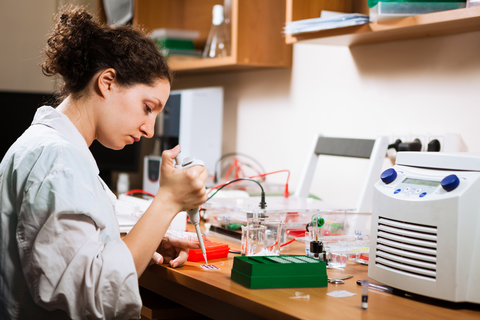How beeswax could help families in warzones

Beeswax and local herbs could be crucial in helping families living in conflict zones store food, according to scientists from Cardiff University and Kharkiv Polytechnic Institute of National Technical University, Ukraine.
Professor Les Baillie from Cardiff University’s School of Pharmacy and Pharmaceutical Sciences has worked with Dr Yudina Yuliia of the Kharkiv Polytechnic Institute of National Technical University to develop an antimicrobial food wrap, using household items and beeswax, which can provide antimicrobial food storage in areas of Ukraine where the power supply has been disrupted by the Russian invasion.
Cardiff University reports that together the scientists have created a kit that can be used not only in Ukraine, but potentially in conflict zones around the world. The kit helps members of the public to create their own DIY food wraps, using beeswax, to preserve food in the absence of electrical power.
Professor Les Baillie, Cardiff School of Pharmacy and Pharmaceutical Sciences at Cardiff University, said “For people living in areas of conflict, they are often relying on food deliveries and aid that can easily perish, especially when disruption to power means that food storage can become a huge issue. Attacks on the power infrastructure in Ukraine highlight how families in warzones need low-cost food storage approaches which do not rely on electrical power.
“Our research at Cardiff University focuses on using honey in battling superbugs and in drug discovery, and because Ukraine is one of the biggest producers of honey in Europe, this inspired the use of bee-derived products for developing food storage options with antimicrobial properties in a conflict zone.
“Traditional cloth wraps have been used since the 7th century BC to extend the shelf life of food. So we were able to combine this with our understanding of the antimicrobial properties of bee-derived products to create a solution for food storage.”
The team focused on the use of propolis, a resin-like material made by bees from trees, and beeswax, due to their natural antimicrobial properties using household materials such as cotton fabrics, food grade paper and cardboard, which can then be infused with beeswax, propolis and herbs which naturally have antimicrobial properties, such as sage.
Dr Yuliia Yudina, Kharkiv Polytechnic Institute of National Technical University, said “When the full-scale invasion of Ukraine started, the attacks on infrastructure led to power outages across the country. These continuous power cuts led to spoilage of significant amounts of food, as people weren’t able to store it properly. This is of particular importance for people living in conflict zones, who are relying on limited deliveries of food already.
“Beeswax is water repellent, so when used in packaging, it can protect against moisture. We also know that beeswax is effective against bacteria and fungi too.
“Propolis, another product made by bees, has a variety of qualities that would be useful in food storage, as it is an antimicrobial, antifungal, antiviral, anti-inflammatory and wound healing agent.
“The common herb sage is also great for food packaging due to its well-known antioxidant, antibacterial, and antifungal effects, therefore adding to the effects of the beeswax.”
The team is currently developing a guide showing how to create their food wrap using locally available resources, which can then be shared easily amongst families living in Ukraine.








